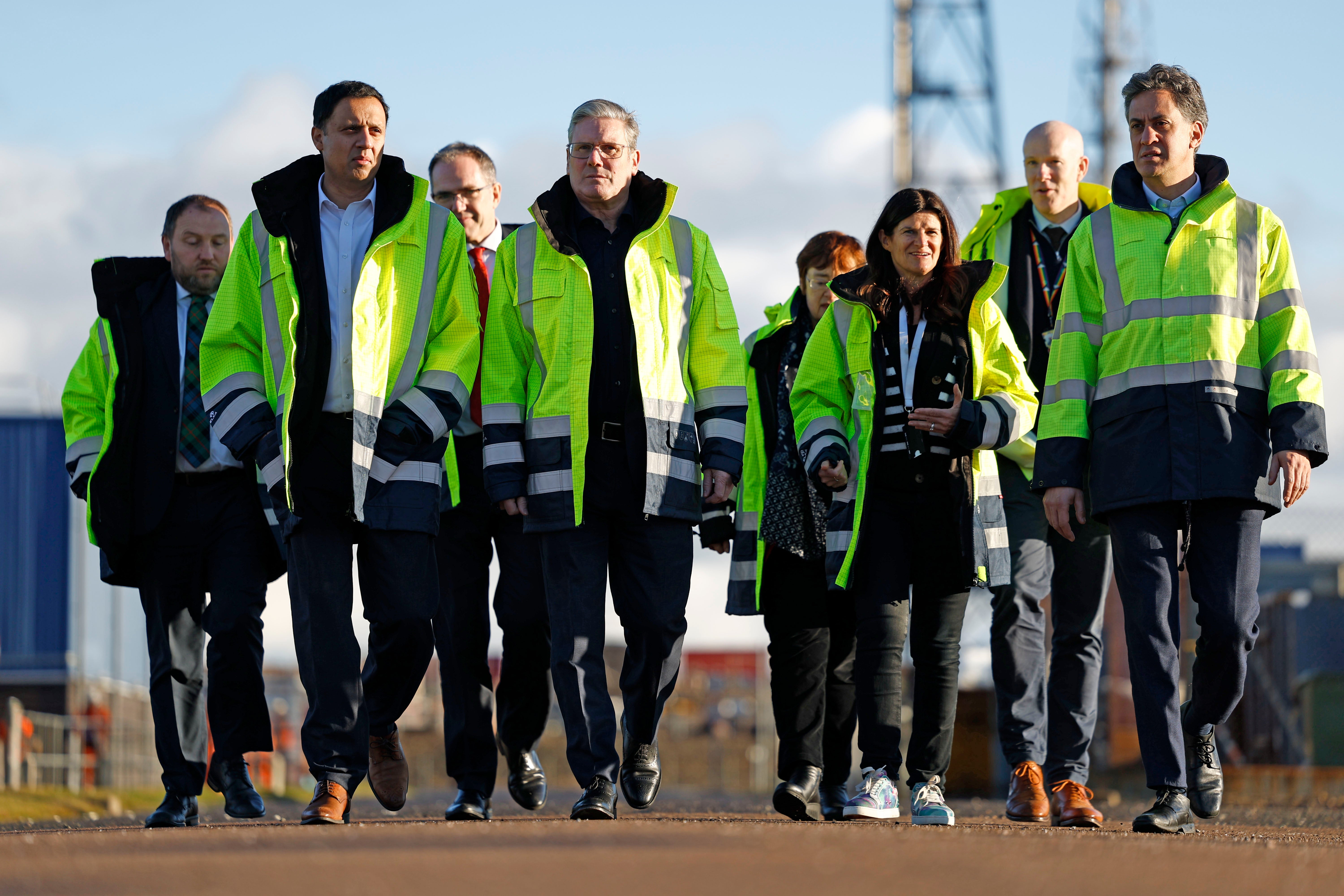The problem with UK democracy? That our politicians don’t do what we want them to do
If people want lower taxes and less public spending, they are meant to be able to vote for a party that delivers just this, writes economist Grace Blakeley – the issue with the UK’s democracy is that the link between peoples’ preferences, their voting behaviour and policy outcomes has been severed


How did you vote? And does the party you picked (whether or not you admit it) say everything about you?
When it comes to the latter... quite simply: no, not really. Your ballot may say much less about you than you think. Many people will vote for the party they consider to be the least bad option, while many more will simply not vote at all.
This disillusionment with politics is part of a much longer-standing trend. This year, trust in political parties reached an all-time low, with only 12 per cent of people saying they trusted any political party at all. Fewer than a quarter of people stated that they trust parliament, and fewer than a fifth said they trusted the news media.
Some of this lack of trust can be put down to short-term political factors – such as Liz Truss’s disastrous premiership – but not all of it. In fact, trust in democracy has been trending downward for many years now. But what explains this widespread disillusionment? I think it comes down to one key issue: politicians don’t do what people want them to do.
Democratic institutions are supposed to provide a mechanism to translate peoples’ preferences into policy outcomes. If people want lower taxes and less public spending, they are meant to be able to vote for a party that delivers just this.
The issue with the UK’s democracy is that the link between peoples’ preferences, their voting behaviour and policy outcomes has been severed.
Compare what people want from politics with what politicians are actually offering: according to a recent poll by Survation, nearly 70 per cent of people back public ownership of water, 66 per cent back public ownership of energy and 68 per cent back public ownership of mail. Yet none of the main political parties are offering any of these options.
People are deeply concerned about the state of the economy and public services, too. Some 40 per cent of people say that they have struggled to afford food in the past three months and 45 per cent of people say the cost of living crisis is a key issue in determining how they will vote.
But Labour isn’t offering any solutions on this issue either – and voters know it. While most voters believe that Labour is better placed to tackle the issue than the Tories, a poll from August 2023 showed that only 23 per cent of people believe that tackling the cost of living crisis was a priority for the party.
It would be easy to respond to this disconnect by claiming that people want nice things but aren’t willing to countenance the tax increases necessary to pay for them. But this isn’t true either.
Twice as many people in the UK support tax increases to pay for public services than those who support cutting taxes and public spending. Some 73 per cent of people support a 2 per cent tax on wealth of over £5m and 78 per cent support a 1 per cent tax on wealth of over £10m.
Yet the Labour Party is steadfastly refusing to consider raising taxes on the wealthy or big corporations. And it is sticking rigidly to its economically nonsensical fiscal rule, which combined with the refusal to raise taxes means there will be effectively no new money to tackle the cost of living crisis or the crisis in the NHS.
Voters want one thing – and politicians are promising another.
To make matters worse, politicians have historically tended to renege on a significant number of their election promises. So will Keir Starmer’s Labour be any different?
The Institute for Fiscal Studies – one of the UK’s most influential economic think tanks – has called on the Labour Party to be honest with voters about how it plans to pay for its many policy commitments. The party’s manifesto looks undeliverable based on its tax and spending promises.
For example, Labour has committed to cut NHS waiting times and deliver 40,000 new appointments per week. But leading health think tank the Nuffield Trust says that Labour’s promises on the NHS are “not credible” and suffer from a “stunning lack of detail”.
Starmer has already ditched a number of critical policy pledges under pressure from vested interests – most notably the pledge to invest £28bn per year in decarbonisation. He caved to pressure from the UK’s main business lobby, the CBI, to water down his pledges to boost workers’ rights, which led to Unite, one of the UK’s largest unions, refusing to endorse the Labour manifesto.
The pressure from business groups and international investors is only going to increase when Labour is in office. So will Starmer show the will – or the inclination – to stand up to these vested interests and fight for his policy agenda? If he doesn’t, only a small portion of what little Labour is promising to do in government will actually get done.
The stats speak for themselves: after the financial crisis, the UK experienced a “completely unprecedented” 15 years of wage stagnation. This parliament is set to be the first in modern history in which living standards have fallen. Now, 80 per cent of climate scientists expect world temperatures to breach 2.5 degrees above pre-industrial levels, leading to a “semi-dystopian” future of heatwaves, food shortages and mass migration. And a full quarter of children in the UK are living in absolute poverty.
We need our politicians first and foremost to acknowledge many of these issues, and then provide a plan to solve them. But until they do so, no wonder trust in politics remains so low.
Those in power must be held to account – and rival parties (Green and independent MPs) must challenge them. It is more vital than ever that we give voice to those who want to see action on climate breakdown, higher taxes on the wealthy and investment in our public services. The last thing we want is more of the same.






Join our commenting forum
Join thought-provoking conversations, follow other Independent readers and see their replies
85Comments